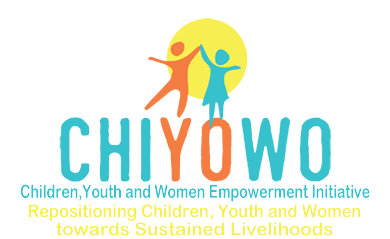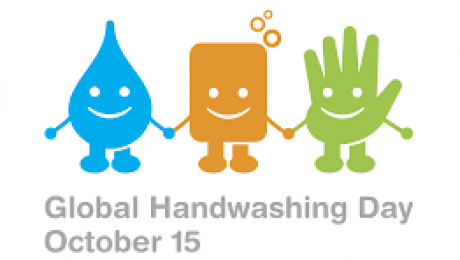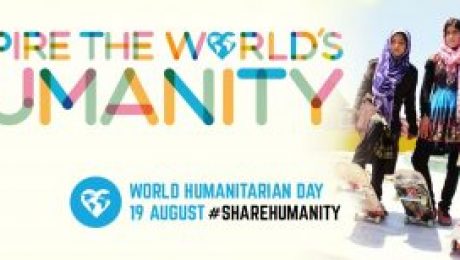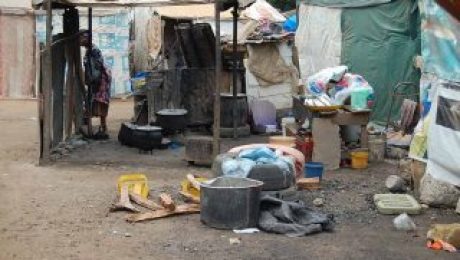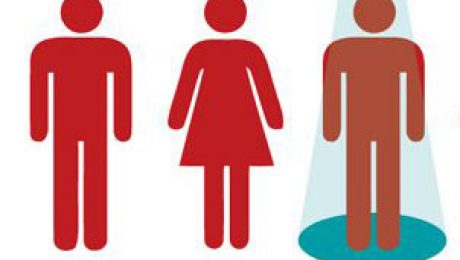International Men’s Day
International Men’s Day
By ChiYoWo
On February 7, 1992 International Men’s Day was first created. It is now celebrated annually on November 19th in over 60 countries. The objective of International Men’s Day is to focus on men’s and boy’s health, improving gender relations, promoting gender equality, and highlighting positive role models. It is a day for men to celebrate all of their achievements and their contributions to their families, communities, marriages, and children. It is also a day to focus on men’s wellbeing socially, emotionally, physically, and spiritually.
The theme for this year’s International Men’s Day is STOP MALE SUICIDE. Sadly, the suicide rate for men is three times higher than women in every country. Annually, there are some 475,000 deaths from murder, of which 80% are male. On top of high suicide rate, data shows that men are overall unhealthier than women in almost every part of the world due to numerous factors. Some of these factors being, the majority of smokers are male, men are also more likely to drink and do illegal drugs than women, they overall have a poorer diet and are faced with more occupational health hazards than woman. Globally, men’s life expectancy rate has dropped down from 69 years to 58.3 years.
Now is the time to bring attention to the issues the men in our world are facing! We need to show we are there for them and care for them as they care for us.
There have been and are many methods of commemorating International Men’s Day such as public seminars, conferences, festivals and fundraisers, classroom activities at schools, radio and television programs, religious observances, and peaceful displays and marches. You can participate in observing International Men’s Day by telling those special men in your life how much they mean to you! Let’s celebrate men and all that they do for the family, friends, jobs, communities and their nations!
[1.] Mens Day – http://www.mensday.ws/en/about.php [2.] BCMJ – http://www.bcmj.org/articles/silent-epidemic-male-suicide [3.] Wikipedia – https://en.wikipedia.org/wiki/International_Men%27s_Day [4.] Mens Health Week – http://www.menshealthweek.org.au [5.] International Mens Day – http://www.internationalmensday.com/
- Published in BLOG
International Day for the Elimination of Violence Against Women
International Day for the Elimination of Violence Against Women
By ChiYoWo
International Day for the Elimination of Violence Against Women was designated to November 25th by the United Nations General Assembly. This date was chosen in remembrance of the assassination of three sisters Maria, Teresa, and Minerva Mirabel. The Mirabel sisters were activists from the Dominican Republic who were opposed to the dictatorship of Rafael Trujillo and were involved in clandestine activities against his regime. Because they were protesting against Trujillo, he ordered for them to be assassinated.
Today, the premise of the International Day for the Elimination of Violence Against Women is to raise awareness to the fact that women all around the world are subject to rape, domestic violence as well as other forms of violence.
Quick Facts
- 1 in 3 women experience physical or sexual violence-mostly by an intimate partner.
- Women who have been physically or sexually abused by their partners are more than twice as likely to have an abortion, almost twice as likely to experience depression, and in some regions, 1.5 times more likely to acquire HIV, as compared to women who have not experienced partner violence.
- It is estimated that of all women who were the victims of homicide globally in 2012, almost half were killed by intimate partners or family members, compared to less than six per cent of men killed in the same year.
- Around 120 million girls worldwide (slightly more than 1 in 10) have experienced forced intercourse or other forced sexual acts at some point in their lives. By far the most common perpetrators of sexual violence against girls are current or former husbands, partners or boyfriends.
Many women’s organizations have pulled together to increase awareness and gather support. It is time for us to join in and end violence against women together.
Please, help us celebrate and take action by participating in International Day for the Elimination of Violence Against Women. The 25th of November is known as “Orange Day’ so be sure to wear something orange!
Sources
[1.] UN Women – http://www.unwomen.org [2.] History – http://www.history.com
- Published in BLOG
World Food Day: Food a Basic Human Right?
World Food Day: Food a Basic Human Right?
By ChiYoWo
Hunger. What do you picture when you think of hunger? Do you think about how you have not eaten in four hours and you really need a snack? Or do you think about the over 805 million people (that is 1 in every 9 people) who live in chronic hunger? Food is a basic human right, yet many people around the world do not have access to safe and nutritious dietary food needed to lead productive lives.
Hunger Facts:
- Sub-Sharan Africa has the highest prevalence of hunger as 1 in 4 people are undernourished,
- Poor nutrition causes nearly half (45 percent) of deaths in children under five. That is 3.1 million children each year,
- 1 out of 6 children (roughly 100 million) in developing countries is underweight,
- Over 70 percent of food insecure people live in rural areas of Africa, Asia, Latin America and the Near East. Many of them are small hold family farmers.
Now, wait a minute. Did that last statistic say that family farmers are food insecure? Yes. Most farmers are able to produce enough food to feed others around them, but not for themselves. Most often, they lack adequate storage for their crops, transportation, access to good seeds, well-functioning markets, and financing.
Did you know that if women farmers had the same access to resources as male farmers do, the number of hungry people could be reduced by up to 150 million! What an accomplishment that would be!
So, participate in World Food Day with us! World Food day is celebrated on the 16th of October every year in in honor of the date that the Food and Agriculture Organization was founded. This is take action day is for everyone to come together and make a commitment to eradicate hunger. Join us on this journey of stopping world hunger!
Sources:
World Food Day USA – http://www.worldfooddayusa.org/what-is-wfd
All Africa – http://allafrica.com
World Food Programme – https://www.wfp.org/hunger/stats
- Published in BLOG
International Day of the Girl Child
International Day of the Girl Child
The event which focuses on the theme ““Girls’ Progress = Goals’ Progress: A Global Girl Data Movement”.
Why International Day of the Girl Child?
October 11, 2012 was the first day the girl child was recognized. International Day of the Girl Child is an international observance day declared by the United Nations; it is also called the Day of the Girl and the International Day of the Girl (IDG). The observation supports more opportunities for girls and increases awareness of gender inequality faced by girls worldwide based upon their gender. This inequality includes areas such as right and access to education, nutrition, legal rights, medical care, and the protection from discrimination, violence against women and child marriage.
Objective of IDG 2016
- Enhance national capacity and systems to collect, analyze and disseminate gender data across the age spectrum to improve statistics on gender-based violence, adolescent pregnancy and reproductive health, informal employment, entrepreneurship, unpaid work, and other priorities for girls and young women.
- Disaggregate data on boys and girls and along other dimensions (e.g., ethnicity, age, income-level, disability, location, migration status, etc.) to better understand exactly which children and adolescents are most disadvantaged and where.
- Improve data collection efforts for often undercounted groups – such as data on sexual violence against younger adolescent girls (10-14).
- Harness “big data” and technology to close the gender data gaps in areas where progress for girls is often difficult to measure due to issue sensitivity or the huge data volume required, including through analysis of girls’ opinions on key development issues on social media.
- Remedy the gender bias in existing measurement tools, particularly biases that exclude the most vulnerable. For example, improved data collection tools can prevent under-reporting of violence against girls and under counting of their births and deaths.
- Pilot and scale-up innovative real-time data platforms to monitor and adapt programming for girls, to ensure girls are active participants in program design and that programs achieve the most impactful results.
- Published in BLOG
Global Handwashing Day – October 15th
Global Handwashing Day- October 15th
By ChiYoWo
It is extremely important to teach our children how to properly wash their hands. According to Globalhandwashing.org every year, 1.7 billion children do not live to celebrate their 5th birthday because of diarrhea and pneumonia. Three quarters of these children are located in Sub-Saharan Africa and South Asia. The most effective way to prevent these diseases is to use soap when washing your hands.
Global Handwashing Day was created to promote hand washing with soap throughout the world and to raise awareness about the benefits of washing your hands. We must teach our children how to wash their hands the right way, and when they should be washing their hands.
How to properly wash your hands:
·Wet your hands with clean running water (either warm or cold).
·Apply soap (This can be liquid, bar or powder soap).
·Lather by rubbing your hands together and scrub vigorously for 20 seconds.
·Rinse hands really well.
·Dry your hands with either a clean or disposable towel or air dryer.
When to wash your hands:
· Before handling food
·Before treating wounds, giving medicine, or caring for someone who is sick
·After using the bathroom
·After you touch animals
·After you sneeze, cough, or touch your face
·After preparing food, especially raw meats
·After you get done being/playing outside
Celebrate Global handwashing Day with us every year on October 15th and help us raise awareness to the importance of washing our hands for the safety of ourselves and others. Using soap while washing your hands is not only an easy and effective way to prevent diseases, but it is also affordable.
[1.] Globalhandwashing.org – http://globalhandwashing.org/[2.] CDC – https://www.cdc.gov/features/globalhandwashing/
[3.] Mayo Clinic – http://www.mayoclinic.org/
- Published in BLOG
World Humanitarian Day on August 19 Celebrates “One Humanity”
World Humanitarian Day on August 19 Celebrates “One Humanity”
Tokunbo Ifaturoti
On August 19, 2016 the international day observances shift to focus on the humanitarian that resides in us all. Under the theme “One Humanity”. Events on that day will pay direct homage to humanitarian aid workers and the over 130 million persons worldwide who depend on their selfless assistance.
It is vital that we acknowledge these efforts and support all plans to increase the reach and effectiveness of humanitarian aid workers. What should also be at the forefront of our thoughts is how we can contribute to make a difference. Being a humanitarian is defined as “having concern for or helping to improve the welfare and happiness of people”. That concern should drive us to
- learn more about the hardships and struggles of people displaced by war and strife
- use all means available to us to spread awareness of their plight
- encourage and instigate change how, when and wherever we can
Another way in which we can allow the humanitarian in us to shine through, is to give our support in time, skills and financial assistance to charities and organizations that are working to improve the conditions of those in need. These entities work to empower the disadvantage, enabling them to make positive changes in their personal lives and in their societies.
When each individual takes these actions in the spirit of humanitarianism then we are affecting changes to the happiness, health and safety of our fellow human beings. We are acting as “One Humanity”.
“In a world that is ever more digitally connected, each of us has the power and responsibility to inspire our fellow human beings to act to help others and create a more humane world.” — UN Secretary-General, Ban Ki-moon
- Published in BLOG
International Day For The Remembrance Of The Slave Trade And Its Abolition 2016
Make It A Day To Remember
International Day For The Remembrance Of The Slave Trade And Its Abolition 2016
Tokunbo Ifaturoti
August 23 is the day set aside by the United Nations for us to focus on the lasting effects of the slave trade, the struggles that led to its abolition and what these mean to us as we try to improve conditions for all around the globe. Irina Bokova, UNESCO Director-General, puts it all into perspective when she states “All of humanity is part of this story, in its transgressions and good deeds.”
The establishment of the International Day for the Remembrance of the Slave Trade and its Abolition comes out of UNESCO’s The Slave Route Project. That initiative is also responsible for the setting up of the International Decade for People of African Descent (2015-2024).
Human nature is laid bare for open examination as we dissect the horrendous trade and the unstoppable movement to fight against it and bring about its downfall. That fight was not swift, but a centuries-long struggle running from the abolition of slavery in a handful of American states in the late eighteenth century to the 2003 banning of slavery in Niger.
Within Nigeria, many internally displaced persons (IDPs) have fled their homes out of fear of modern day slavery at the hands of insurgents. Also, Badagry in Nigeria’s Lagos State was a primary town for the export of slaves to the Americas. Whether past or present, slavery and its nuances have left an indelible imprint that tempers how societies and sectors within societies relate to each other.
It is important that the achievements of groups which were (or still are) physically, mentally and emotionally oppressed be highlighted as a way to restore a sense dignity and equality to them. In doing so we will be guaranteeing that they are able to freely continue to make worthwhile contributions to the growth of whichever countries they are in. In the case of Nigeria’s IDPs, it is worthwhile to focus on their strengths and empower them to become independent as a way to maintain their freedom.
Let us not forget the scourge of slavery but also, most importantly, let us collectively decide to focus on the powerful human traits that have led to its abolition. These are the traits that will drive the development of societies that respect and nurture all their citizens regardless their ethnic background, gender, age, or socio-economic status.
- Published in BLOG
Giving Internally Displaced Women Hope
Giving Internally Displaced Women Hope
Tokunbo Ifaturoti
There are approximately three million internally displaced persons (IDP) in Nigeria who have been displaced by conflict. The number has been rising steadily in recent months and is accompanied by increased calls for the protection of the most vulnerable among the displaced, namely women and children.
The report Improving the Protection of Internally Displaced Women: Assessment of Progress and Challenges by Chaloka Beyani, United Nations Special Rapporteur on the Human Rights of Internally Displaced Persons reminds us that women make up just about half of the persons displaced within their own countries. It also highlights the list of special rights the United Nations observes for women who have been internally displaced. These rights include:
- Non-discrimination and the right of expectant mothers, mothers of young children, and female heads of household to protection and assistance that “takes into account their special needs”
- Protection from sexual and gender-based violence (SGBV) and other forms of violence and exploitation
- The right to access all necessary documents, education and training
- The need for internally displaced women to actively participate in decision-making at all stages of displacement
Within Nigeria, several individuals and organizations, including local and international charities, have taken up the challenge of ensuring these rights are respected. Many have gone a step further by seeking to empower internally displaced women. These efforts range from sewing machines donated by Princess Ozolua and the Body Enhancement Foundation, to the provision of psychosocial support by the government-established Nigeria Foundation for the Support of Victims of Terrorism (Victims Support Fund), and the donation of beads and ornaments to encourage the development of sustainable livelihoods amongst women in IDP camps in Nigeria by ChiYoWo (Children, Youth and Women Empowerment Initiative).
It is unlikely that all IDPs will ever be able to return to their original homes and villages. The outpouring of concern and assistance, however, raises hopes for women in Nigerian IDP camps. Their rights are of international interest and they are being given some of the tools, power and support they need to successfully restart life for themselves and their families outside of the camps.
- Published in BLOG
Apprenticeship – The Role of Local Businesses In Youth Development
Apprenticeship – The Role of Local Businesses In Youth Development
Tokunbo Ifaturoti
There have been a plethora of studies conducted on the connection between poverty and unemployment. Similarly, studies have pointed to skills training and career building through apprenticeship as a way to help alleviate poverty.
The following can be achieved through apprenticeship:
- Businesses can give young people opportunities to gain experience of the culture that exists in the world of work. The youth learn valuable lessons in work ethic, including: effective time management; working as a part of a team to achieve set objectives; and how to handle interpersonal relationships in a professional manner.
- The experience of apprenticeship can teach youth appropriate and usable skills to leverage opportunities elsewhere, once the apprenticeship period has ended. By becoming more marketable, they are able to seek out jobs in sectors that were previously closed to them.
- Youth carry with them a dynamic energy that makes them eager to learn and take on challenges. They come to the workplace with fresh ideas, enthusiasm to make a contribution and a unique perspective of the evolving marketplace. Businesses can tap into this dynamism to make apprenticeship a win-win situation for the company and the young people involved.
- Businesses can provide mentorship through current employees who can stand as strong role models for the youth joining the workforce. The assigned mentor can assist with career coaching as well as with personal development. Often times, such examples are lacking in the communities from which these young people come.
- Companies derive benefit from the apprenticeship programme as it ensures that there is a set of trained individuals to fill future vacancies. These persons would already possess the requisite skills and be familiar with the organization’s structure and culture.
In summary, businesses in and around disadvantaged communities must begin to embrace their role in helping to lift these communities out of poverty. Apprenticeship is one way in which they can effect change.
- Published in BLOG
Volunteering Overseas – How Does It Change You?
Volunteering Overseas – How Does It Change You?
Tokunbo Ifaturoti
There is one common result for everyone who chooses to volunteer overseas. Their view of the world, what is important in it and what needs to be done is profoundly changed. Here are a few other ways in which you will change by becoming a volunteer in a foreign country.
- You discover sides to yourself you never knew were there. Your strengths in particular shine through and you realize you are capable of caring deeply for strangers and empathizing with their conditions.
- You understand deeply what is meant by the phrases “working lunch” and “a full day’s work”. You wake up earlier than you have ever done, help to complete tasks while you grab a bite and often work into the late hours of night assisting where it is needed.
- You know full well the restorative value of sleep. It is not just the tasks but also the new experiences that draw on your physical and mental energy. A strange room and a strange bed are of little consequence when sleep calls at the end of a day of sharing yourself.
- You place a new meaning on the word “stranger’. You easily strike up conversations on all manner of topics with people you have never met before. A ride on public transportation becomes a chance to share cultures and exchange views on world events.
- You realize long-distance relationships really can work. The friendships you make can survive the distance and the different cultures that separate you. Home becomes more of a feeling and less of place as you return year after year to continue you good work.
- You acknowledge your place in the global village. The ways in which we impact our “neighbours” from the great distances of own home countries becomes abundantly clear. From the brands you now choose (and refuse) to support to more conscious treatment of the environment, you take others into consideration.
Take a moment to share in our forum how being a volunteer has changed you.
- Published in BLOG
